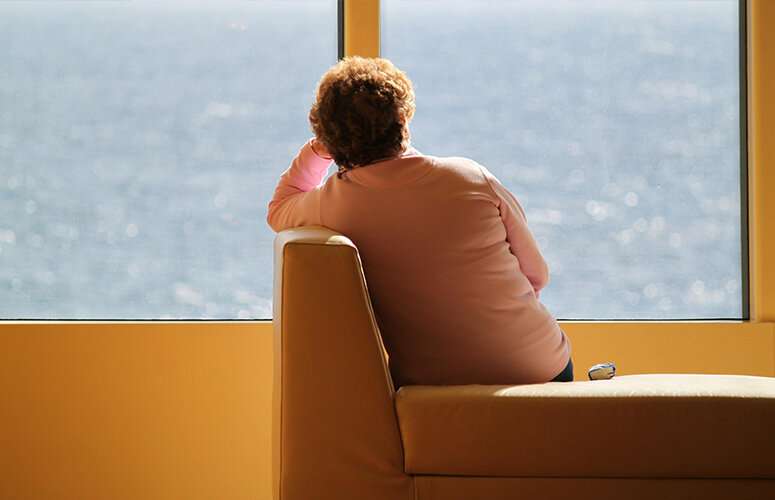Depression and anxiety are more frequently diagnosed in women

The UPV/EHU's research group OPIK, Social Determinants of Health and Demographic Change, is a multidisciplinary group comprising research personnel in the field of social and health sciences; it explores the social factors influencing health and disease in the population, social inequalities in health and the policies that have the potential to modify these social determinants in the interests of improving the health of the population.
Gender is a significant determining factor in mental health and in how it is managed by healthcare services, according to recent studies conducted by this group and based on health questionnaires completed in the Basque Autonomous Community (2018) and in Spain (2017), and on the Spanish sample corresponding to the European Health Survey (2014). What stands out in the analysis of these three databases is the higher prevalence of poor mental health among women of all ages and across all social groups; in addition, there is a multiplier effect due to the accumulation of experiences of inequality. This reality also appears to be unequal in terms of the age and socioeconomic level of the patients.
The Ph.D. holder in public health Amaia Bacigalupe, one of the authors of the study, asserts that "women are more frequently diagnosed with depression and anxiety and the taking of prescribed psychotropic drugs is also significantly higher, even if there is no difference with men with respect to mental health equality, diagnoses and frequency of visits to healthcare centers. All this could point to the existence of a medicalisation process of mental health in women, but interpreting its origin is complex since the processes involving the high prevalence of diagnosis and overprescription undoubtedly play a role, but maybe also due to infra-diagnosis and lower prescription rates in men." Bacigalupe adds that these aspects should be tackled in greater depth in future studies.r
Reducing gender inequalities
The research group highlights the fact that reducing gender inequalities in mental health will need to be the result of policy intervention on various levels. "There is a clear relationship between the degree of gender inequality in society and gender inequalities in mental health," says Amaia Bacigalupe, "so all those policies designed to combat the discrimination endured by women on the labor market, in the responsibility for domestic and care work, in the use of time and, generally, relating to those that empower women on the basis of their greater political representation and making them more socially visible, will exert a positive effect on the reduction in mental inequalities between men and women."
Another aspect highlighted in the study is the need to make commitments starting from an institutional level and geared towards curbing the medicalisation of everyday malaise from a clear gender perspective. "In the field of mental health in which the medicalisation of malaise is especially common, far from addressing the cause of the problem, some problems of a social origin end up receiving psychiatric or psychological treatment," said the researcher in the Department of Sociology 2 at the UPV/EHU.
According to the study, it would also be necessary to encourage spaces for reflection in the clinical setting designed to help to collectively deconstruct certain aspects that have become natural in gender binarism and which have underpinned the definitions of psychopathology and its current treatment. Bacigalupe also says that "the actual incorporation into clinical practice of the biopsychosocial model, as well as the implementing of strategies to promote health and emotional well-being from a community health approach based on assets, could prevent the over-pathologization and over-medicalization of everyday malaise once a global view of how the social context influences health is acquired."
More information: Amaia Bacigalupe et al, El género como determinante de la salud mental y su medicalización. Informe SESPAS 2020, Gaceta Sanitaria (2020). DOI: 10.1016/j.gaceta.2020.06.013
















